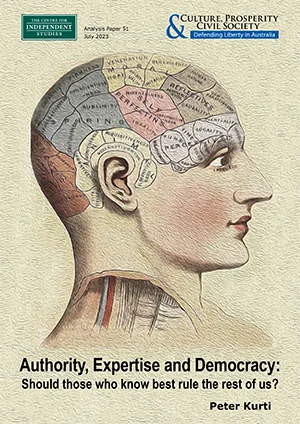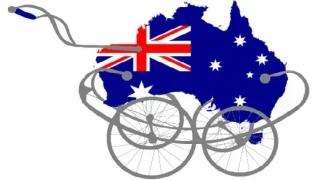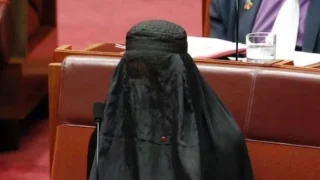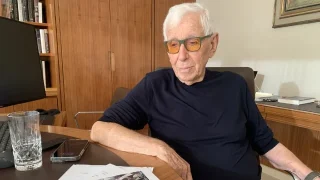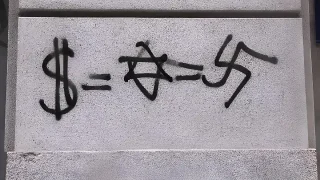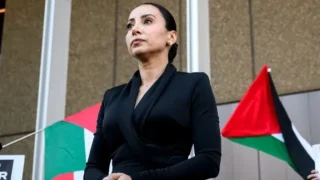
A. On Heeding Expert Advice
During the Covid-19 pandemic, state and territory leaders afforded great responsibility for decisions about managing both the impact of the virus and the expectations of a fearful public to unelected public health experts. Severe restrictions imposed on movement and association at the behest of these experts — Chief Medical Officers (CMOs) — lasted for many months.
The exceptional circumstances of the pandemic hardly formed part of the regular routine of government. Indeed, so exceptional was the pandemic that dependence on advisors with medical and public health expertise might well have been unavoidable if government was to be effective.
Faced with the need to assuage public fears, there was also a need for the public to hear what medical experts made of the pandemic and the dangers it posed. Most Australians readily complied with state-imposed edicts, apparently confident that governments were acting only in the best interests of citizens.
However, many expressed concern that as the pandemic ran its course, political leaders appeared to be doing one of two things. Either they followed the advice of medical experts blindly and without regard to the social, economic and community impact of the imposed measures; or they ignored expert medical advice because of concerns about its likely impact would fuel worries that they were not doing enough to keep citizens ‘safe’.[1]
These concerns only compounded as, during the course of the pandemic, medical experts began to fall out with one another, thereby dissolving any notion of universal medical consensus about how best to manage contagion.[2] As the pandemic ran its course, populations bowed to the dictates of chief medical officers. The will and wishes of the demos were subordinated to the opinions and directions of the knowledgeable few.
While the Covid-19 pandemic provides a rare, if egregious, example, of their doing so, the ceding by elected representatives of decision-making to health bureaucrats is just one example of the problem that Adrian Pabst, a political scientist, has described as double delegation — “whereby representatives elected by citizens delegate power to unelected officials who are part of a professional political class.”[3]
B. Experts And Democracy: what’s the problem?
In a complex society increasingly conditioned by technology, it can seem very reasonable that elected politicians defer to what is assumed to be the superior skills, experience and intelligence of experts. For example, few — if any — parliamentarians, can be expected to be abreast of developments in epidemiology and management of infectious diseases, artificial intelligence, or cryptocurrencies and blockchain. In a similar way, the complexities of monetary theory or climate science largely prevent elected representatives from ever having anything more than a superficial grasp of the issue.
Bureaucrats, academics and directors of specialist not-for-profit organisations are among those who might seek to provide expert advice when sought by government. They may also seek to persuade those in government of the need for their advice. With such expert advice always ready to hand, any elected politician who decided not to heed it might fear denunciation in the media for being foolish, ignorant or arrogant. Seeking advice, therefore, seems a low-cost option for politicians concerned to protect their reputations.
However, double delegation to a professional expert class poses a key problem in a liberal democracy. Accumulation of power by experts threatens to lead to:
A regime in which the knowledgeable rule by virtue of their technical know-how, where the votes of people who understand politics outweigh those of their compatriots.[4]
Specifically, the problem of the rule of experts arises when elected representatives (politicians) abdicate, rather than simply delegate, responsibility for settling decisions about policy to ‘the knowledgeable’. This may occur, for example, by formally imbuing institutional experts with decision-making power over government policy, or by the unquestioning dependence of politicians on expert advice.
Indeed, the experts may be more than willing to act in the place of politicians and can even demand that, by virtue of their ‘technical know-how’, politicians may only act in accordance with that advice.
What needs to be assessed is the extent to which the influence experts currently exercise in Australia — at both federal and state levels — is compatible with our system of parliamentary democracy.
Concern about the compatibility of experts with democracy can take two forms. First, there can be concern that experts might exercise their authority in such a way as to privilege their own positions over those both of elected representatives and of the ordinary voter. The myth of expert neutrality must be dispelled; it is not a necessary truth that experts are omniscient or beneficent or disinterested when it comes to expressing opinions.
The second concern is that experts may exert undue influence in decision making and policy formulation, which often happens because elected representatives, fearing potential wrong decisions, relinquish the duties and responsibilities entrusted to them by the voters, thereby providing the opportunity for experts to step in.
Therein lies the threat that the ‘rule of experts’ poses to liberal democracy. For embedded at the heart of a liberal democracy is the idea that society comprises individuals who are in a voluntary, contractual relationship with the state. This voluntary relationship entails that the domain of the political is a domain of competing rights and interests concerning the allocation of resources in a society.
Decisions about allocation of resources and the resolution of competing interests in the formulation of public policy always involve trade-offs between those who will gain from a decision and those who will lose. In a liberal democracy, the responsibility for making such decisions must rest with elected representatives and should not be delegated to unelected and politically unaccountable experts. As the American scholar, Roger Koppl, has remarked, a liberal, plural democracy is based on the idea that:
The specific conception of the common good that ought to prevail and therefore be translated into public policy is the one that is constructed through the democratic procedures of parliamentary deliberation and electoral competition.[5]
During the Covid-19 pandemic, CMOs were well-placed to give expert advice to governments about the epidemiological issues arising from managing the health of populations, especially those deemed most vulnerable. However, they were neither well-placed nor well-qualified to make determinations about the appropriate trade-offs between safe-guarding public health, regulating a functioning economy, maintaining education of children and young people, and curtailing civil liberties.
Needless to say, ‘rule by experts’ often appeals to those who distrust the business of democratic politics “with its rough-and-tumble clash of competing interests, ideologies and passions, and its susceptibility to corruption, dishonesty and self-interestedness.”[6] What those distrusting critics fail to admit is that rule by experts is not merely a corrective to the tumult of democracy; rather, it actually can be subversive of the healthy working of democratic politics.
While some of the more obvious examples involve politicians devolving contentious or unpopular policy decisions to expert committees (for example expenditure reform or climate policy), it can also be a way for the executive agencies and statutory bodies to bypass an uncooperative legislature.
In a liberal democracy characterised by a plurality of opinions and views, political decisions that are not made in accordance with the norms of democratic deliberation but are based on the opinions of a small caste of experts can only ever be partial and, in consequence, biased.
C. Experts Not Toadies: keeping experts on the leash
There is, of course, no warrant for denouncing expertise or the skills and abilities of experts, as such; rather there is the need to harness expertise and ensure it is always subject to democratic and political control. This point was made with some force nearly 60-years ago by the then prime minister, Sir Robert Menzies, in a ministerial statement on the Australian economy in which he affirmed the importance of striking an appropriate balance between political judgment and technical opinion:
In a free and self-governing country, policies will be political. Under the party system, opposing political parties will, not infrequently, have opposing policies. In no case is a political policy the product of purely expert opinion on technical matters. It must cover a wide area of localities and circumstances. It is commonly pursued and applied in the light of much accumulated experience and political judgment.[7]
Menzies, who was discussing a report from the (Vernon) Committee of Economic Enquiry, declared that expert opinion, however informative, must always be subordinate to political judgment and must never be considered to have “some binding authority”:
No government, from whatever side of the House it may come, and indeed no parliament, can abdicate its own authority and responsibility for national policy. It will welcome the assistance of experts, but its tasks will take it far beyond the limits of economic expertise. Political policy in a democratic community does not depend upon purely economic considerations.[8]
In reflecting on the rise of the expert in liberal democracies, it is surely only sensible that expertise ought to be at a premium in an increasingly complex technological world. Indeed, all branches of government are dependent on expert advice in order to function effectively.
There can be no argument that experts are not needed, nor can it be expected that every expert decision must be submitted to some kind of lay, non-expert panel for evaluation before being acted upon.
However, expertise must always at least be subordinate to, rather than antagonistic to the processes of liberal democracy. Or to put it another way, as sociologist, Michael Schudson, expresses it, the heart of the issue is “the tedious, but vital, matter of the length of the leash on which democracy places the expert.”[9] The answer, then, must be to identify the formula by which the length of the leash can be calculated simply and reliably.
How Long Is The Leash? Cultivating three facets of the culture
Unhappily, no such formula exists. The length of the leash to which experts must be tethered will always be variable; but this does not mean that no effort should ever be expended in attempting to assess an appropriate length.
Following Schudson, it is important for the leash to be short enough, through institutional arrangements, to ensure that experts remain accountable to elected representatives. At the same time, the leash must be long enough for experts to exercise appropriate autonomy and not simply express the views of politicians: “in other words, how can the leash be long enough to keep the expert from becoming a toady?”[10]
However, regrettably, there is no ready formula whereby democracy can calculate the precise length required of an expert’s leash. Yet the question remains an important one; and a good starting point for considering it is to recognise that democratic government has become too complex to be undertaken without building collegiality and tolerance among competing groups and voices. The pursuit of efficiency is not enough; it is, rather, a matter of forging what Schudson refers to as “democratic cognition [which] must be distributed cognition – but it need not be evenly distributed.”[11]
Thus, it is important to recognise not only that democratic cognition is distributed unevenly across any given society (because people have varying skills, talent, experience and educational attainment); it is also important to recognise that because this cognition is distributed (unevenly), democratic engagement with experts must allow for dissent between competing expert voices but in such a way that forges a collegiality which permits dissenting opinions and views to be tolerated.
None of this makes it any easier to formulate a matrix to determine how and when delegation to experts by elected representatives is either necessary or appropriate. Indeed, the primary question is not whether or not experts should be engaged on a particular issue, for there is no such mechanism that allows for the calculation of an answer. Rather, the appropriate question to ask is:
Given the need to engage expertise, what principles, mechanisms and values does a plural democracy need to cultivate so as to ensure the appropriate and responsible contribution of experts to the formulation of policy?
In other words, it is preferable to identify the broader cultural contours that inform the use of experts so as to better support the appropriate use of expertise; reduce (if not ever eliminate) the risk of expert failure; and allow experts an appropriate degree of latitude and autonomy whilst ensuring adequate accountability.
Three cultural contours
What are these cultural contours? There are three of them that, if cultivated and emphasised, can underpin the approach to engaging experts and help encourage an efficient and responsible contribution to democratic decision making:
- Tolerance of dissent — upholding the fundamental right to free speech will permit open debate, critical evaluation of differences and expression of dissent both among experts and between experts and the wider public. Climate change and pandemic management are two obvious examples that demonstrate how restricted freedom to express dissent (for example, through ‘cancellation’ and public denunciation) leads to serious distortions in the integrity of expert advice. A renewed commitment to tolerating dissent is essential for the open exchange of opinion and the responsible engagement of experts.
- Political courage — elected representatives need to be less anxious about upsetting public and political opinion in determining the policy trade-offs, which are an inevitable and unavoidable part of government. Elected representatives need to exercise the prudence expected of them; they must overcome fears of courting hostile reaction, especially in mainstream and social media; and they must muster the political courage of their convictions to resist displacement by what political scientist, Daniel J Mahoney, describes as “a scientistic cult of expertise and administration, and the rise of a nihilistic culture of repudiation.”[12]
- Institutional integrity — no democracy today can dispense with experts, but institutional mechanisms of accountability can ensure that experts exercise autonomy responsibly. Such mechanisms include oversight of budgets, appointments and professional codes of ethics and conduct, all of which can ensure the performance of experts is regularly reviewed and assessed. Democratic challenge and public accountability are essential for the effective exercise of authority in a democracy.[13]
Mechanisms to ensure accountability are not difficult to establish, although those mechanisms need to function efficiently and effectively. Problems are more likely to arise when experts are afforded extensive and unchecked degrees of autonomy in the exercise of their skills. At the same time, and somewhat paradoxically, the political task of making decisions will usually be more successful when experts do enjoy degrees of autonomy that allow them greater freedom to exercise those skills.
D. When Are Experts Needed? Six questions in search of answers
How, then, should decisions about whether or not to engage experts be made? There are several questions that can guide such engagement, including whether experts should have decision-making power themselves or if their role should be limited to providing expert advice to the politically elected decision-maker, who is accountable to the public for the decisions made.
a) Does the decision require technical knowledge?
Delegation to experts will be more appropriate when the advice sought depends upon specialist technical knowledge. For example, decisions about the technical specifications of a new bridge would require sophisticated engineering knowledge. By contrast, the decision about the location of the new bridge would be less dependent on technical engineering factors, so expert advice would be less central to the decision.
b) Is the expert appropriately qualified to make the decision?
Many decisions require a very specific expertise that senior managers or bureaucrats may not, themselves, have. Delegation to experts may not be appropriate in situations where those charged with making a decision are not so heavily dependent on external expert advice. For example, a Chief Medical Officer may have a specific area of medical expertise that does not extend to the management of infectious diseases.
c) Is there significant disagreement between experts in the relevant area?
Some fields of expertise are in a state of flux, and both technology and methodology are regularly questioned. Where experts within an area disagree about the impact of a particular policy decision, it is more appropriate for the decision maker to be accountable to voters for the decision taken. Good examples of this include the areas of artificial intelligence (AI) and cryptocurrency where initial regulatory frameworks ought to be in the public sphere.
d) How broad are the consequences of the decision likely to be?
When the decision is likely to have a widespread social, political or economic impact, it should be made by a democratically elected (and accountable) politician rather an expert. For example, decisions about energy transition will have an impact well beyond concerns for public health and safety and the climate. Expert advice may advocate for the elimination of petrol- and diesel-powered cars, but many poorer citizens may be unable to replace their existing vehicles, and substantial investment in infrastructure would also be needed to support use of electric cars.
e) How will the decision-maker be held accountable for the decision?
Robust mechanisms for accountability can be one way to improve expert decision making. While experts are empowered to make decisions without oversight from elected representatives, they may be subject to regular review and accountability from parliament to justify the decisions they have made. For example, many independent bodies are required to attend Senate Estimates hearings to justify their decision making.
f) Do those affected by the decision have recourse to review or appeal?
Where the decision made by an expert can be reviewed, overturned or overruled — whether by an independent third party or by an elected representative — delegation to experts may be more appropriate. For example, many decisions made by the executive are subject to review by parliament or by legal bodies like the Administrative Appeals Tribunal.
Experts should not be allowed unmonitored or unconstrained freedom simply because they are experts. As an illustration of the abuse of autonomy by experts, Schudson cites the dismal and criminal complicity of medical doctors in the practice of torture. In these cases, any conception of loyalty to medical and professional ethics was displaced by political loyalty to a regime or state. After all, what kind of professional and moral subsidence can have made possible a medical doctor’s silent or active complicity in torture?[14]
E. Experts: Who Knows What?
The problem of experts arises because different people know different things. Although a truism, it nonetheless reflects the fact that knowledge is distributed differently throughout any society, giving rise to what F.A. Hayek described as “the Division of Knowledge”, something he considered a central problem of economics.[15] As Hayek describes it, the idea of the division of knowledge seeks to explain:
How the spontaneous interaction of a number of people, each possessing only bits of knowledge, brings about a state of affairs which could be brought about by deliberate direction only by somebody who possessed the combined knowledge of all those people.[16]
The division of knowledge within a society is unplanned and unintended; hence it gives rise to what Koppl describes a “spontaneous order” which emerges “unintendedly from the dispersed actions of many people who have not all somehow pre-coordinated their plans.”[17] Accordingly, the social distribution of knowledge, expressed by the principle of the division of knowledge and the ’spontaneous order’ to which it gives rise, must lie at the heart of any account of experts and the problem to which they give rise.
Who, then, is to count as an expert for the purposes of this discussion? According to Schudson, an expert is “someone in possession of specialised knowledge that is accepted by the wider society as legitimate.”[18]
Despite the elegant simplicity of this definition, given the spontaneous dispersal of knowledge in a society, the distinction between expert and non-expert cannot be determined according to possession of knowledge. Rather than making a distinction on the basis of the acknowledged possession of knowledge, Koppl argues that it needs to be made on the basis of a contractual arrangement. In Koppl’s view, “an expert is anyone paid for their opinion.”[19]
Using contract as the basis for determining who is and who is not an expert also removes the problem of determining the impact that imparting deficient expertise has on the standing of an expert. Once it is determined that an expert is someone who is paid to give advice, that person will, by definition, remain an expert even if the advice given turns out to be erroneous — or even completely false.
Information Choice Theory: why experts fail
Public choice theory rejects any possibility that there are disinterested actors involved in the formulation of public policy and holds that any estimation of public policy must consider the interested status of all actors. It holds that perverse outcomes can occur due to the self-interest of experts as much as that of legislators. Yet public choice theory suggests that the perverse outcomes produced by self-interest in the political process are likely to be worse.
Koppl adapts the theory of public choice and argues that the presuppositions about human motivation must also apply to an account of experts. What he calls information choice theory holds that experts are driven by the same motives as non-experts, and that incentives influence the information that experts choose to share. “In particular, we must abandon the idea that experts seek only the truth without regard to motives such as fame and fortune.”[20]
The expert must choose what information to provide to others. Just as public choice theory includes a theory of government failure, information choice theory includes a theory of expert failure. It helps us to understand [why] relying on experts may not produce the outcomes we desire and expect.[21] [Italics in original]
Even so, while expert failure can occur in a competitive market for expert opinion, Koppl argues that the motivational assumptions which underpin information choice theory suggest that expert failure is more likely to occur when experts have an epistemic monopoly rather than when they must compete with one another. Competition among experts influences the choices they make about what information or opinions to share.
F. Taking The Temperature: How healthy is Australian democracy?
The warrant of ‘expert advice’ is assumed to be sufficient to justify the imposition of policy decisions taken without wider public consultation and by an elite caste which is unaccountable to the electorate. However, this problem is compounded by the incessant shuffling of ministers between portfolios which tends to inhibit both the accumulation of ministerial expertise and the capacity of ministers to assess adequately the expert advice presented to them. No longer is a minister either expected or able to evaluate the opinions of experts; so a minister simply defers to the authority of the expert confident that she will not have to bear responsibility for any bad decisions taken in reliance on the advice.
In the long term, the influence of an ascendant expert class in Australia might have an adverse effect on the efficacy of our democratic processes. Is this already happening in Australia? Can Australian democracy be given a clean bill of health? A quick check-up will help determine the answer.
The levels of trust which Australians have in democracy are declining. When Anthony Albanese led the Australian Labor Party to electoral victory in May 2022, he won government with only 33 per cent of the primary vote — the lowest primary vote in a federal election for 90 years. The Coalition did not fare much better winning just 36 per cent of the primary vote; indeed, at 69 per cent, the combined major party primary vote was the lowest since the 1930s and marked what the 2022 Australian Election Study (AES) described as “a large-scale abandonment of major party voting.”[22]
According to the AES, this slump in the primary vote is one indicator that attitudes to democracy and levels of political trust are declining in Australia. In 2022, the beneficiaries of the declining primary vote were the Greens, who won four seats in the House of Representatives, and independent candidates (dubbed ‘Teal independents’ because their platform was a combination of green and blue policies), who won six seats in Liberal electorates.
Support for breakaway parties, to both right and left, appears to be a clear symptom of the collapse in the primary vote which the AES attributes to several factors including socio-demographic shifts in voting patterns based on gender, generation and social class. Taken together, the AES argues that these shifts indicate that voters are open to changes in how Australia’s political system works.[23] Paul Kelly, editor-at-large at The Australian, is more pointed in his observations:
Australia is becoming a more fractured nation — loyalty to institutions, religions and political party is in decline. People are less ready to follow authority figures. And the 2022 election was a watershed with the major parties winning only two thirds of the primary vote. National politics is at a threshold moment.[24]
Declining trust in government is a key factor in Australia’s modest levels of satisfaction with democracy. However, despite declining levels of political trust, the AES found that in 2022, 70 per cent of Australians were, overall, satisfied with the way democracy is working — an increase of 11 per cent on the low point recorded by the AES in 2019. “This is not particularly high judged against long-term trends,” the AES reports, “but marks a reversal of a consistent period of decline in satisfaction with democracy from 2007 to 2019”[25]
Of course, citizens vote in elections, and this affords a periodic opportunity to express either approval of, or dissatisfaction with elected governments. Even so, for critics such as political scientist, Kenneth Minogue, the state’s heavy-handed imposition of its authority in these ways amounts to overreach because it displaces the capacity of citizens to face the consequences of their own decisions. This, in turn, gives rise to the disenchantment and lack of trust detected by such surveys of the popular mood as those conducted by the AES. According to Minogue:
The evident problem with democracy today is that the state is pre-empting — or ‘crowding out’ — our moral judgments. Decisions about how we live are what we mean by ‘freedom’, and freedom is incompatible with a moralizing state.[26]
Removing from the individual the capacity not only to choose but also to face the consequences of one’s choice reduces the individual, in Minogue’s opinion, to a condition of servility: conformity is demanded not only of our actions but even our opinions.[27] This growing sense of servility can only lead to the individual citizen feeling even further alienated from governments voted into office at elections.
In summary, low levels of trust in the motives of elected representatives, coupled with demands for conformity to certain opinions, help to explain the scepticism with which Australians now appear to regard this country’s system of parliamentary democracy. Greater dependence on — or even subservience to — the advice of unelected and unaccountable experts may well compound the problem of declining trust because, in part, they are perceived to be usurping the roles and responsibilities of elected representatives. Would government be better off without experts?
G. ‘Double Delegation’ In Australia: Do Experts Pose A Problem?
Yet of course — and already established — government by elected representatives in a modern society cannot possibly exercise its functions without recourse to expert advice. One of the arguments favouring the role of experts is that in areas of decision-making that require specialist knowledge, decisions should be left to experts who have such knowledge. Even though equipped with the six questions discussed earlier, which can help determine whether expert advice is needed, two case studies will help to illustrate the challenge of delineating the responsibilities and roles of expert and non-expert.
In the first case study, the highly technical expertise commanded by monetary policy experts raises issues about the extent of the autonomy to be enjoyed by a select group of people whose specialised skills are not distributed widely in society. The second study involves the quasi-judicial investigation of corruption in Australian political life by legal experts (judges and barristers). Due to the reputational harm often suffered by those being investigated on suspicion of corruption, this example raises issues about the public accountability of experts. Although involvement of experts in these highly specialised spheres of public life is hardly avoidable, each case illustrates some of the difficulties which engagement of experts can generate.
Case Study 1:
Monetary Policy: Expertise at the Reserve Bank of Australia
A principal task of the Reserve Bank of Australia (RBA), as set out in the Reserve Bank of Australia Act (1959), is direction of monetary policy by means of flexible inflation targeting. At present, the RBA has a flexible inflation target of 2 to 3 per cent. This target is set in a monetary policy statement that has been agreed between the Federal Treasurer and the RBA Governor. Responsibility for achieving the inflation target rests ostensibly with the Board of the RBA.[28] The Act specifies that the Board of nine people is to comprise three officials and six other members who are neither officials of the RBA nor employees in the Public Service.[29]
Faced with a deterioration in the Australian economy which had been occurring in the period 2021-22, the newly elected Albanese government came under political pressure because of rising interest rates and rising inflation. The RBA Board also faced mounting criticism because of perceived failures in the setting of monetary policy, and its initially slow response to rising inflation, as the country emerged from the Covid-19 pandemic.[30]
Critics attributed this series of failures to a number of factors; but one factor, in particular, was that most members of the RBA Board were business leaders who did not have expertise in monetary policy or macroeconomics.[31] Concerns about failures at the RBA, before and during the pandemic, prompted a review of the bank , the composition of its Board and the way in which the Board discharged its functions.
The review of the RBA was published in March 2023.[32] One of its principal recommendations was that Section 11 of the Act, which gave the government the power to overrule the RBA’s decision, should be repealed.[33] One critic of this recommendation, which was accepted by the federal government, argued that it would, in effect, render experts immune from political accountability. Further, by granting complete, unaccountable independence to the RBA, repeal of Section 11 might also allow politicians to escape accountability.
However, those who defend Recommendation 1 argue that it merely transfers the power to overrule decisions of the RBA Board from the executive to parliament, and that parliament retains the power to amend its own legislation. Even so, amending legislation is not always such a simple parliamentary task since support for such change must be argued for and defended within the chambers.
Another of the review’s recommendation was to strengthen arrangements for making monetary policy by creating a separate, expert Monetary Policy Board (MPB) which would have responsibility for setting monetary policy. The members of this new board were expected to bring “an independent and informed perspective on monetary policy and [be] able to robustly challenge [sic] the views of others.”[34]
The RBA already occupies a monopoly position because there is no other institution comparable to a central bank which can supply what the bank provides. However, due to the technical complexity of the expertise members of the MPB would provide — and coupled with the status of the MPB as a statutory body — members of the MPB could well occupy a comparable monopoly position over the knowledge they supply to the RBA. As the Austrian School economist, Steven Horwitz, has observed:
Expertise can thereby get wrapped up in its own world in which feedback is weak or non-existent and where the temptations of power can decouple from the underlying task and become a kind of world of its own. That decoupling is highly likely to result in expertise doing more harm than good.[36]
It is for this very reason that the RBA Review has recommended stronger transparency and accountability measures. Decisions need to be explained in detail and subject to questioning in frequent media conferences. Board members will be expected to give public speeches explaining their views. The intention is to increase external scrutiny and feedback, which the Review judged to be lacking.
The principal criticism levelled by free market economists, such as Milton Friedman and others, at the problem of expertise in central banks centres on the monopolistic discretion given to them in deciding how to manage the money supply. This allows for fewer checks on the accuracy of that expertise which, in turn, can give rise to bad decisions.[37]
Even so, while such an arrangement may be undemocratic and even suboptimal, given the central banking arrangements in this country and the complexity of the ’product’ involved — that is, management of the money supply — it is almost certainly preferable to have it run by experts rather than by democratic political processes.
Responsibility for setting the objectives of monetary policy — typically, stable inflation at around 2-3 per cent, as noted above, and maximum sustainable employment — rests with the government. However, the question of how best to achieve those objectives is a technical one and so best left to experts. As Horwitz has argued, whatever the inadequacies of ‘rule by experts’, the cure of democratic control is worse than the disease of expertise:
If the choice, within the constraint of a monopoly, is between those who know a great deal about money and the majority vote of a less knowledgeable group, the lesser of the two evils would be the experts.[38] For one thing, experts are more likely to have more steel in their spines than elected politicians when decisions likely to be unpopular with the electorate have to be made; and for another, whereas politicians, with an eye on opinion polling, are prone to exaggerate the feasible and dismiss the unfeasible, experts are more likely to offer a more balanced assessment of policy options.
On balance, therefore, it does appear that the role of experts in the effective functioning of the RBA is not only unavoidable but also desirable. An economic analysis of expertise tends to indicate that, given the context of a monopoly, while such an arrangement is imperfect, it is preferable to a more democratic arrangement for decision-making about management of Australia’s money supply.
Case Study 2
Integrity: Expertise at Independent Anti-Corruption Commissions[39]
Permanent anti-corruption commissions have become an established feature of Australian political life, largely in response to the long history of corruption in this country. Corruption — meaning obtaining private gains from public office through bribes, extortion and embezzlement of public funds — plagued colonial administrations and the states after federation, especially New South Wales.[40] Opportunities for corruption appear to abound wherever government and private interests intersect.
NSW was the first state to create a permanent anti-corruption body. The Independent Commission Against Corruption (ICAC) was established by statute in 1988 thereby delivering an election promise from the incoming Greiner Government.[41] The newly created ICAC was — and remains — a permanent body with the investigative powers of a royal commission to compel attendance of witnesses and release of documents. Commentators such as James Spigelman, a former Chief Justice of NSW, argue that permanent anti-corruption commissions actually constitute part of a fourth branch of government — “an integrity branch” — equivalent to the legislative, executive and judicial branches:
The integrity branch of government is concerned to ensure that each governmental institution exercises the powers conferred on it in the way it is expected to do so and for the purposes for which those powers were conferred.[42]
Anti-corruption commissions are not the only institutions comprising the fourth, integrity branch of government, according to Spigelman. They do, however, play an important role in “maintaining the integrity of government, that is, ensuring that powers are exercised for the purposes and manner envisaged.”[43] A weakness in Spigelman’s proposal that integrity commissions form a fourth branch of government is that they are not equal to executive government but subordinate to it. Integrity commissions are, therefore, part of the executive branch of government and not independent of it.
Executive government is involved in the appointment of commission members and although there are statutory requirements for the appointment of commission chairs, these, too, are made by the executive branch. Even so, and notwithstanding their subordinate status, anti-corruption commissions, such as the NSW ICAC, have faced trenchant criticism for the ways in which they conduct their investigations.
The NSW ICAC was established “to investigate, expose and prevent” corrupt conduct involving public authorities and public officials in order “to promote the integrity and accountability of public administration.”[44] While not a part of the judicial system, NSW ICAC has quasi-judicial authority to investigate allegations of corruption and to determine whether there has been any wrongdoing. ICAC’s relentless expansion of the definition of corrupt conduct has led Chris Merritt, Vice-President of the Rule of Law Institute of Australia, to argue that “the goal was admirable; the result is not.”[45]
In recent years, the NSW ICAC has become enveloped in controversy because it has come to function as an almost parallel system of justice. Although it cannot determine guilt or innocence, exercise of ICAC’s power to hold public inquiries into — and make public its findings about — corrupt conduct can lead to severe reputational damage to those it is investigating.[46]
Far from serving as a fourth (integrity) arm of government, as Spigelman proposes, the NSW ICAC is essentially an extension of the executive arm which has wrongly expropriated judicial power. However, it has become an extension that has been stripped of the safeguards that are a feature of the judicial process, such as the presumption of innocence. As such, the NSW ICAC serves not so much as an example of the separation of powers, but rather of their blurring.
Even so, clearly the goal of weeding out corruption in Australian public life remains an admirable one. It is true, as Prasser has remarked, that standards and expectations about how anti-corruption commissions go about their work have been raised. This, in turn, has “improved integrity in public life, moderated some of the least desirable aspects of the political system and given impetus for further reforms.”[47]
Experts should be allowed to function in areas of decision-making that require specialist knowledge. Once the matter in question no longer requires such specialist knowledge, decisions should not be left in the hands of experts but in those of elected officials. However, this belies the difficulty already discussed of always being able to determine precisely when expert knowledge and advice is required, and when it is not.
A plural democracy must guard against the dangers that can arise when neither the principles of autonomy nor accountability are clearly and obviously observed. Therefore, it is imperative that attention is paid to cultivating the three cultural contours identified earlier — tolerance of dissent; political courage; and institutional integrity — whereby the contribution of experts to democratic decision making can remain both efficient and responsible.
Experts serving in a liberal democracy, whether at a central bank, on anti-corruption commissions, or in any number of other areas of public life, need to do so under the authority of government and, ultimately, of parliament, itself. The risk of expert failure is only heightened when the norms of civic culture are neglected or ignored.
H. Who is Watching the Experts?
Experts are not a new phenomenon. At one time, significant moral and intellectual authority was vested in the Christian church, but as the cultural prominence of clergy declined in the 17th century with the dawn of Enlightenment, a new group of intellectuals emerged which the poet and critic, Samuel Taylor Coleridge, called a “clerisy”.
The status of the clerisy was later defended by others, including John Stuart Mill. Mill understood the importance of developing the character of the demos and saw this as one of the responsibilities of the clerisy, who he depicted in his essay, Civilization, as the “rational person”. Thus, if the rational person thought the masses were not yet prepared to exercise control of government, it was the responsibility of that person to “exert his [sic] utmost efforts in contributing to prepare them, using all means for making the masses wise and better.”[48] As Mill’s biographer, Richard Reeves, has remarked, Mill understood that “the role of the clerisy, then, was not to hold back the tide of progress, but to guide it.”[49]
With the rise of representative democracy in 19th century Britain, therefore, Mill was clearly of the view that the clerisy had both the duty and the authority to guide the, as yet unformed, lives of the masses to equip them for the responsibility of exercising democratic government. There was both a need to encourage deference to the political wisdom of the clerisy and yet somehow to reconcile it with mass democratic participation.
Of course, as British sociologist, Frank Furedi, has observed, the epistemological authority of the expert as asserted by Mill also demanded the deference of the masses.[50] Of further significance is that, as noted by US commentator, Joel Kotkin, the clerisy was becoming (and, indeed, continues to become) increasingly secular:
Religious clerics would remain part of this class, though on the whole it grew more secular over time. Today’s clerisy includes university professors, scientists, public intellectuals and heads of charitable foundations who have replaced the clergy as what the German sociologist, Max Weber, called ‘the new legitimizers’.[51]
One might add to the ranks of Kotkin’s clerisy list such figures as chief medical officers, human rights and anti-corruption commissioners, economists, climate scientists, university academics, judges and even media personalities. Those belonging to each of these groups often present themselves as making reasoned, disinterested and objective decisions for the good of society. However, this report has argued that any economic account of experts which takes into consideration the tenets of public choice theory must always allow for the influence of personal interests, opinions and prejudices of those providing expert advice.
I. Conclusion: Keeping faith with experts
As the social and economic consequences of the Covid-19 pandemic continue to make themselves felt in Australia through rising interest rates and rising inflation, memories of life, itself, during the grim days of state-imposed, CMO-directed lockdowns is receding somewhat. However, there is considerable vestigial anger at the measures imposed by the state, at the instigation — and with the enthusiastic support — of public health officials.
Vaccine mandates, movement restrictions, forced lockdowns and compulsory (and compulsive) PCR and RAT testing added to the complexities of involving public health experts in the tasks of government. For example, those vulnerable to infection tended to be the elderly and those with pre-existing cardiac or pulmonary conditions whereas younger, healthier people did not for the most part succumb.
Assessed across 32 locations, Covid had a median infection fatality rate of around just 0.2 per cent. Yet for that, government shut down the economy and civil society at the insistence of public health experts and CMOs. Specialist input and advice from medical experts was certainly needed during the exceptional circumstances of the pandemic and democratically elected representatives acted appropriately in taking this advice into account.
However, politicians appeared to act solely upon this advice, making decisions without considering other key policy considerations — such as the economic, social and psychological impact of political decisions.
The pandemic had an impact on every sector and aspect of — and on every activity within — Australian society. CMOs, however, could claim expertise in only one aspect, that is, public health. Even then, not all had had experience of managing either a pandemic or widespread outbreaks of infectious disease. By failing to frame their decisions within the framework suggested in this report, politicians thereby acted in ways that served only to subvert the norms of liberal democracy.[52]
Some have argued that such was the public yearning for safety and the avoidance of risk, that we willingly submitted to what one critic described as “the dictatorship of the health bureaucracy” and were, in turn, blinded to the emergence of an oppressive authoritarianism.[53] However, as Judith Sloan, an economist, has noted, “experts don’t speak with one voice and many are peddling values they hold dear”:
Politicians are elected to govern us all; this requires judgment about the trade-offs that inevitably exist with all policy decisions. The tyranny of experts needs to be resisted. They may have a role to play but not in an uncontested way.[54]
The Covid-19 pandemic provides an excellent (and recent) example of the dangers that arise when the relationship between experts and elected representatives becomes distorted and the norms governing autonomy and accountability are suspended or corrupted. The pandemic should also provide a warning to all citizens in a pluralist democracy of the importance of striving to prevent such distortions occurring in the future.
These distortions are among the factors that have contributed to the declining levels of trust in Australia noted earlier in this report. In addition, it has led to a diminished willingness of people to follow authority figures, as identified earlier by Kelly.[55] Declining trust in democracy poses a significant threat to the health of Australian democracy. This decline is fuelled by popular perception that a professional class of experts, increasingly dominant because of its influence on the political class, is imposing its own principles, beliefs and values on the wider community with what can appear to be contempt for those who question that world view.[56]
To function healthily, a democracy — a system which the American critic, Christopher Lasch, described as one that “makes it possible for people to live with their differences”[57] — needs to develop the cultural norms which encourage proper oversight of experts. This is something that depends on the capacity of citizens themselves to cultivate not only forms of democratic cognition but also habits of civic virtue.
In other words, it is the character of citizens, rather than the efficacy of experts that makes democracy work effectively and efficiently. Equally, when the character of citizens is found wanting, experts will swoop in to fill the deficit. According to Lasch, it is quite wrong to assume “that institutions, as opposed to character, provide all the virtue a democracy needs.”[58] This, in turn, means that in a virtuous civil culture, experts must expect to be accountable not only by means of the institutional mechanisms that define and limit the scope of their authority but also by means of public discussion and debate in the media and other forums.
Do experts harm democracy? The more appropriate question is: can democracy do without experts? The answer to that question is, clearly, ‘no’, for as Schudson observes:
The best democracy does not seek to minimise the role of expertise. A democracy without experts either will fail to get things done or fail to get things done well enough to satisfy citizens.[59]
However, even if the length of the leash to which experts are tethered cannot be calculated with precision, the length must always be monitored.
Further, this report has argued that tolerance of dissent, political courage and institutional integrity are three of the cardinal cultural and civic principles that need to be cultivated (and nurtured) in order more effectively to evaluate both the scope of the authority exercised, and the extent of the autonomy enjoyed, by experts.
Expert knowledge is never an end, but always a means to accomplishing a greater good. There is, therefore, no justification for allowing experts to usurp the role of elected representatives and to claim that their specialised knowledge provides some kind of warrant to rule over the rest of us in their place.
Experts can fail in the duties owed to democratic government when they fail to persuade, when they shroud their pronouncements in complex, impenetrable language, or when they forget the importance of cultivating the informed consent of the wider public.
But, equally, citizens in a plural democracy have a responsibility to attend to – and argue for and defend – the broader cultural contours that must inform engagement with experts. Risk, complication and failure are an inherent part of life. Citizens would do well to remember this and, in doing so, to cultivate a degree of expertise in evaluating the expertise of the experts.
Acknowledgements
The author is grateful to Paul Kelly, Chris Merritt, Scott Prasser, Ian Harper, Augusto Zimmermann and Simon Cowan for critical advice and suggestions in preparation of this report.
References
[1] Luara Ferracioli, “We mustn’t conflate public health advice and political decision making – not even in a pandemic”, ABC Religion & Ethics (23 August 2021) We mustn’t conflate public health advice and political decision making — not even in a pandemic – ABC Religion & Ethics
[2] When experts disagree with one another, see, for example, Liam Mannix, “Drug watchdog overturns ivermectin ban despite warnings from its own experts”, Brisbane Times (25 May 2023).
[3] Adrian Pabst, The Demons of Liberal Democracy, (Polity Press: Cambridge, 2019), 13.
[4] Andrew J. Taylor, “The Expert in American Life”, National Affairs, (No. 25, Spring 2023), 141-155, 146.
[5] Roger Koppl, Expert Failure, (Cambridge UK: Cambridge University Press, 2018), 7.
[6] Wilfred M. McClay, “What Do Experts Know?”, National Affairs (No. 1, February 2009), 145-159, 146.
[7] Sir Robert Menzies, Australian Economy: Ministerial Statement, Commonwealth of Australia, House of Representatives, (1965) Parliamentary Debates (Official Hansard), 1079 https://parlinfo.aph.gov.au/parlInfo/search/display/display.w3p;db=HANSARD80;id=hansard80%2Fhansardr80%2F1965-09-21%2F0071;query=Id%3A%22hansard80%2Fhansardr80%2F1965-09-21%2F0070%22
[8] Sir Robert Menzies, as above, 1079.
[9] Michael Schudson, “The Trouble with Experts – and Why Democracies Need Them”, Theory and Society, Vol. 35, No. 5/6 (December 2006), 491-506, 497.
[10] Michael Schudson, as above, 497.
[11] Michael Schudson, as above, 506.
[12] Daniel J. Mahoney, “Between Marx and Aquinas”, Claremont Review of Books, Vol. 22, No. 4 (2022), 65.
[13] See, Mark Warren, “Deliberative democracy and authority”, American Political Science Review, Vol. 90, No. 1 (March 1996), 46-60, 47.
[14] Michael Schudson, as above, 497f. Schudson cites the 20th century involvement of Nazi doctors in experiments on human subjects and also the 21st century complicity of US medical staff in the torture of inmates at Abu Ghraib prison in Iraq.
[15] F.A. Hayek, “Economics and Knowledge”, Economics, Vol.4, No.13 (February 1937), 33-54, 49.
[16] F.A. Hayek, as above, 49.
[17] Roger Koppl, as above, 10.
[18] Michael Schudson, as above, 499.
[19] Roger Koppl, as above, 8.
[20] Roger Koppl, as above, 153.
[21] Roger Koppl, as above, 153.
[22] Sarah Cameron, Simon Jackman, Ian McAllister, Jill Sheppard, The 2022 Australian Federal Election: Results from the Australian Election Study, (Australian National University: 2022), 7.
[23] Sarah Cameron et al., as above, 36.
[24] Paul Kelly, “Portrait of a politically fractured nation”, The Australian, (10 December 2022).
[25] Sarah Cameron et al., as above, 27.
[26] Kenneth Minogue, “Morals & The Servile Mind”, in Timothy Fuller (ed.), On Liberty and Its Enemies: Essays of Kenneth Minogue, (Encounter Books: New York, 2017), 240.
[27] Kenneth Minogue, as above, 245.
[28] The duties of the Board are set out in Section 10 (2) of the Reserve Bank Act 1959 (Cth) which states:
It is the duty of the Reserve Bank Board, within the limits of its powers, to ensure that the monetary and banking policy of the Bank is directed to the greatest advantage of the people of Australia and that the powers of the Bank… are exercised in such a manner as, in the opinion of the Reserve Bank Board, will best contribute to:
(a) the stability of the currency of Australia;
(b) the maintenance of full employment in Australia; and
(c) the economic prosperity and welfare of the people of Australia.
[29] Section 14 Reserve Bank Act 1959 (Cth.
[30] The Board had also been criticised for leaving interest rates too high in the 3-year period between 2016 and 2019 thereby leading to stagnant growth and inflation below the 2-3 per cent target band
[31] Frank Chung, “’Part-time amateurs’: RBA ‘failing’ due to lack of expertise, former insiders say”, (News.com.au) 18 July 2022 https://www.news.com.au/finance/economy/interest-rates/parttime-amateurs-rba-failing-due-to-lack-of-expertise-former-insiders-say/news-story/7c55e3543bb591172383cf1f7edd99b6
[32] An RBA Fit for the Future, (Commonwealth of Australia, 2023.
[33] Recommendation 1, An RBA Fit for the Future, (Commonwealth of Australia, 2023, 17.
[34] An RBA Fit for the Future, as above, 8.
[35] John Edwards, “Hold your applause: RBA review doesn’t explain central bank’s problem”, The Australian (21 April 2023).
[36] Steven Horwitz, “Expertise and the Conduct of Monetary Policy” in, Steven Horwitz and Laurent Dobuzinskis (eds.) Experts and Epistemic Monopolies (Emerald Publishing: Bingley UK, 2012), 69.
[37] Steven Horwitz, as above, 72.
[38] Steven Horwitz, as above, 74.
[39] I am indebted to Chris Merritt and the Rule of Law Institute of Australia for help in researching the following section of this report.
[40] Scott Prasser, Royal Commissions and Public Inquiries in Australia, (LexisNexis: Chatswood, NSW, 2021), 83.
[41] The Independent Commission Against Corruption Act 1988 (NSW)
[42] James Spigelman, “The integrity branch of government”, Australian Law Journal, Vol.78, (2004), 724-737, 726.
[43] James Spigelman, as above, 737.
[44] Section 2, The Independent Commission Against Corruption Act 1988 (NSW)
[45] Chris Merritt, Submission to the Committee on the Independent Commission Against Corruption: Inquiry into Reputational Damage on an individual being adversely named in the ICAC’s investigations, (Rule of Law Institute of Australia, Sydney NSW: July 2020).
[46] It should be noted that a public finding of corruption remains in place even in the event of an acquittal in a criminal court.
[47] Scott Prasser, “Australian integrity agencies in critical perspective”, Policy Studies, Vol. 33, No. 1 (January 2012), 21-35, 31.
[48] John Stuart Mill, “Civilization”, quoted in Richard Reeves, John Stuart Mill: Victorian Firebrand, (Atlantic Books: London, 2007), 116.
[49] Richard Reeves, as above, 116.
[50] Frank Furedi, Democracy Under Siege: Don’t Let Them Lock It Down!, (Zero Books: Winchester, 2021), 61.
[51] Joel Kotkin, The Coming of Neo-Feudalism: A Warning to the Global Middle Class, (Encounter Books: New York, 2020), 50.
[52] See Section D above.
[53] See, for example, Rocco Loiacono, “The Dictatorship of the Health Bureaucracy: Governments Must Stop Telling Us What Is For Our Own Good”, in, Augusto Zimmermann & Joshua Forrester (eds.), Fundamental Rights in the Age of Covid-19, (Redland Bay, QLD: Connor Court, 2020), 165ff.
[54] Judith Sloan, “Once it was distance, but a new tyranny has emerged in coronavirus era”, The Australian, (16 September 2020) https://www.theaustralian.com.au/commentary/once-it-was-distance-but-a-new-tyranny-has-emerged-in-coronavirus-era/news-story/173654a1dfd96ea36e280d0f34b2b4a2
[55] See Paul Kelly, as above (endnote 25).
[56] On the divergence between ‘elite’ and ‘popular’ opinion in the United Kingdom, see, Matthew Goodwin, Values, Voice and Virtue: The New British Politics, (Penguin: London, 2023).
[57] Christopher Lasch, The Revolt of the Elite and The Betrayal of Democracy, (Norton: New York, 1996), 85.
[58] Christopher Lasch, as above, 86.
[59] Michael Schudson, as above, 504.
